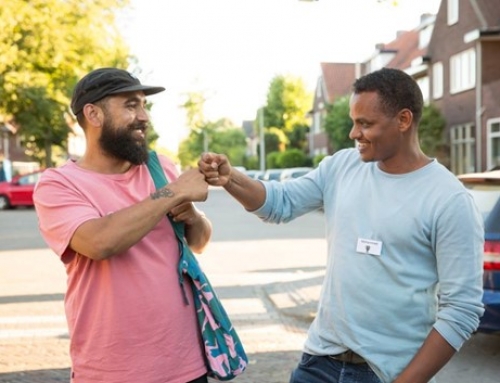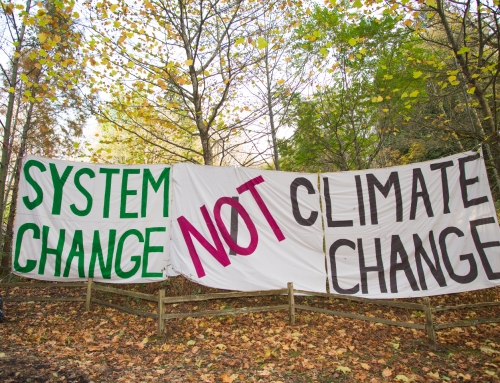What does it mean to be equal? How are we different from each other? Why is our society the way it is? To be understood is as important as wanting to understand. Throughout my process as a social innovator, I have researched the behavioural patterns of people in our society. I could not understand why people treat other people differently depending on qualities like skin colour, religion, culture, sex, or sexual orientation and had to act. I was not the only one thinking this way. Black Lives Matter, Stop Asian Hate and the Abortion-rights movements are all examples of recent initiatives of people demanding equal treatment in unjust systems. In Western society, minorities face discrimination as they are not part of the dominant group. I mentioned the word “minorities,” but what does this mean?
“A non-dominant group which is usually numerically less than the majority population of a State or region regarding their ethnic, religious or linguistic characteristics and who (if only implicitly) maintain solidarity with their own culture, traditions, religion or language.”
(European Commission, 2022).
Minority groups face more injustice than majority groups in society. In most cases, minorities have been marginalised in history. Activism has led to big changes, from abolishing slavery in the Netherlands in 1863 to giving women the right to vote in 1919. Nowadays, a lot of activism takes place on social media, which was not available to earlier generations.
“From truth and reconciliation to inclusion and diversity and mental health, young people are bringing awareness to societal crises and making headlines along the way. Historically, this is nothing new. Young people have long been leaders and catalysts of important movements.”
(Ramey & Lawford, 2020).
The rise of online connections
Everyone can have a voice and share their experiences or opinions online, whatever the intentions are, with people from different bubbles. This also enables people from different bubbles to connect more easily. This is different compared to the past, where people were separated depending on their culture and (often tied to someone’s ethnicity) their social class in a classist or homogeneous manner. This separation led to neighbourhoods where people with the same experiences and thinking patterns lived together in their bubble. In Dave Gray’s liminal thinking pyramid, this “bubble” equals “the obvious”.

Figure 1.
Liminal Thinking (Dave Gray, 2018).
The internet helps bridge different realities of people. Even though this has its big disadvantages, the internet has helped modern-day activism.
“The rise of the #BlackLivesMatter hashtag – along with others like #MeToo and #MAGA (Make America Great Again) – has sparked a broader discussion about the effectiveness and viability of using social media for political engagement and social activism. To that end, a new survey by the Center finds that majorities of Americans do believe these sites are very or somewhat important for accomplishing a range of political goals, such as getting politicians to pay attention to issues (69% of Americans feel these platforms are important for this purpose) or creating sustained movements for social change (67%).”
(Pew Research Center, 2018).
The influence of capitalism on society
My interest in these inclusive or exclusive behavioural patterns evolved in wanting to understand the economic impact minorities face. Certain patterns enforce a generational cycle. People with a different ethnic background find it more difficult to find a job, which influences the quality of education for their children. This can influence their children’s careers and therefore the next generation. This can be observed in neighbourhoods where certain groups in terms of race, political view, income etc. are more dominant.
It is striking that a language deficiency in deprived neighbourhoods is a problem in 87% of the schools. While this is the case for only 23% of the primary schools in regular neighbourhoods. This is because children who go to school in deprived areas often have parents who do not have a sufficient understanding of the Dutch language. These families also often have financial difficulties and are socially isolated.
(Kinderrechten, 2019).
In a capitalistic society where people compete for being the smartest or best worker, minority groups are selected less. My research showed that minorities have more difficulties finding a job or having access to quality education. A Dutch study at the UvA (University of Amsterdam) and the University Utrecht found:
Between 2016 and 2018, researchers from the UvA and Utrecht University sent 4,200 job applications using fictitious names. (Fictional) people with a Turkish, Moroccan or Antillean background were 40% less likely to get a response from employers.
(Arbeidsmarktinzicht, 2021).
However, ethnic minorities are not the only group that face these disadvantages in society. Some people of the white dominant ethnic group face these challenges as well, because of the way capitalism encourages competition in the labour market. I started my internship at Quiet Den Bosch, a non-profit organisation, to understand poverty better. In my research, I looked at inequality in general and how this societal issue relates to other societal issues like the climate crisis. Many of these challenges stem from a society that, as I mentioned previously, continues to prioritise financial profit. This often results in discrimination, poverty and exclusion experienced by people who “lose” in this system.
In the end…
It has taken centuries for society to become the way it is now. To understand societal challenges in general we need to understand how our society came to be the way it is today. I have a strong passion for history and asking the deeper “why?” questions about historical events. Why are the Global North and South so different in terms of technological development? Why does the Global South receive their Corona vaccines last? Why have Asian people faced an increasing number of hate crimes since the Coronavirus outbreak? I am convinced that there is more to learn about society by exploring history and understanding what has caused us to live the way we do now. Therefore, I want to explore the connections between history and inequality through my blogs and find my purpose as a social innovator.
References
Anderson, M., Toor, S., Rainie, L., & Smith, A. (11 July, 2018). Activism in the Social Media Age. Pew Research Center: Internet, Science & Tech. Retrieved from https://www.pewresearch.org/internet/2018/07/11/activism-in-the-social-media-age/
Arbeidsmarkt InZicht. (25 February, 2021). Discriminatie op de Arbeidsmarkt: Een Hardnekkig verschijnsel. [Discrimination in the Labor Market: A Persistent Phenomenon]. Retrieved fromhttps://arbeidsmarktinzicht.nl/arbeidsmarktdiscriminatie-een-hardnekkig-verschijnsel
European Commission. (2022). Migration and Home Affairs. Retrieved from https://ec.europa.eu/home-affairs/pages/glossary/minority_en
Kinderrechten. (27 March, 2020). Ongelijke Kansen in het Onderwijs: problemen in achterstandswijken. [Unequal Opportunities in Education: Problems in deprived areas]. Retrieved from https://www.kinderrechten.nl/leerlingen-op-basisscholen-in-achterstandswijken-hebben-het-moeilijker/
Miller, D. (19 February, 2018). Liminal Thinking. UXmatters. Retrieved from https://www.uxmatters.com/mt/archives/2018/02/liminal-thinking.php
Ramey, H., Lawford, H. (28 February, 2020). Why Activism Is Natural for Young People. Retrieved from https://greatergood.berkeley.edu/article/item/what_activism_is_natural_for_young_people





